Evidence of Things Not Seen James BaldwinThe Fire Next Time; Nobody Knows My Name; No Name in the Street; The Devil Finds Work: Introduction by Eddie S. Glaude Jr. James BaldwinGiovanni's Room James BaldwinSet in the 1950s Paris of American expatriates, liaisons, and violence, a young man finds himself caught between desire and conventional morality. With a sharp, probing imagination, James Baldwin's now-classic narrative delves into the mystery of loving and creates a moving, highly controversial story of death and passion that reveals the unspoken complexities of the human heart.Giovanni's Room James BaldwinGiovanni's Room James BaldwinGo Tell It on the Mountain James BaldwinJames Baldwin : Collected Essays : Notes of a Native Son / Nobody Knows My Name / The Fire Next Time / No Name in the Street / The Devil Finds Work / Other Essays James Baldwin, Toni Morrison"Collected Essays" is the most comprehensive gathering of Baldwin's nonfiction ever published. The collection confirms his as a uniquely prophetic voice in American letters. Included are such famous essays as "The Harlem Ghetto", "Everybody's Protest Novel", Many Thousands Gone", and "Stranger in the Village" .James Baldwin: Early Novels and Stories: Go Tell It on a Mountain / Giovanni's Room / Another Country / Going to Meet the Man James BaldwinWith burning passion, the authority of experience, and a sharp, epigrammatic wit, these essays articulate issues of race, democracy, and American identity. This edition—the most comprehensive gathering of Baldwin's nonfiction ever published—presents the complete texts of the landmark collections "Notes of a Native Son" (1955) and "Nobody Knows My Name" (1961); "The Fire Next Time" (1963), a classic analysis of America's racial divide; "No Name in the Street" (1972); and "The Devil Finds Work" (1976); and 36 more essays, including nine never before collected.James Baldwin: Later Novels: Tell Me How Long the Train's Been Gone / If Beale Street Could Talk / Just Above My Head: James Baldwin, Darryl PinckneyThe Library of America completes its edition of the collected fiction of the literary voice of the Civil Rights era with this volume gathering three revealing later works of the 1960s and ’70s. With such landmark novels as Go Tell It on the Mountain, Giovanni’s Room, and the essay collections Notes of a Native Son and The Fire Next Time, James Baldwin established himself as the indispensable voice of the Civil Rights era, a figure whose prophetic exploration of the racial and sexual fissures in American society raised the consciousness of American readers. But by the late 1960s and ’70s many regarded Baldwin as being out of sync with the political and social currents transforming America: too integrationist for Black Arts Movement writers and others on the Left, yet too “pessimistic” for many white readers, and as a result his later novels have never received the consideration given his earlier fiction. Sober in outlook but ambitious in scope, these works show Baldwin responding with his signature passion—for music, for justice, for life—and searching intelligence to the new realities of a rapidly changing cultural landscape, as the Movement era gives way to the age of identity politics that we still live in today. This culminating volume in the Library of America edition of his fiction illustrates how Baldwin continues to be relevant in twenty-first-century America, especially in his dramatizing of the unequal treatment of black men by the police and the justice system, his nuanced depictions of the black family, and his explorations of sexuality.Little Man, Little Man: A Story of Childhood James Baldwin, Nicholas Boggs, Jennifer DeVere BrodyFour-year-old TJ spends his days on his lively Harlem block playing with his best friends WT and Blinky and running errands for neighbors. As he comes of age as a “Little Man” with big dreams, TJ faces a world of grown-up adventures and realities. Baldwin’s only children’s book, Little Man, Little Man celebrates and explores the challenges and joys of black childhood.
Now available for the first time in forty years, this new edition of Little Man, Little Man—which retains the charming original illustrations by French artist Yoran Cazac—includes a foreword by Baldwin’s nephew Tejan "TJ" Karefa-Smart and an afterword by his niece Aisha Karefa-Smart, with an introduction by two Baldwin scholars. In it we not only see life in 1970s Harlem from a black child’s perspective, but we also gain a fuller appreciation of the genius of one of America’s greatest writers. |
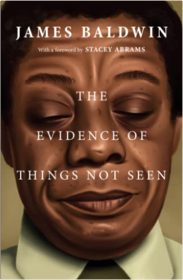
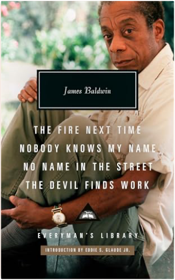
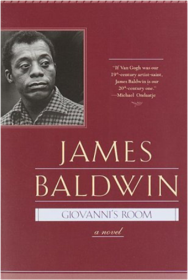
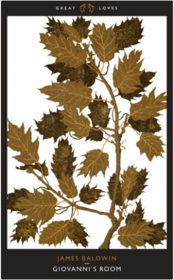
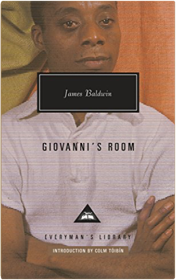
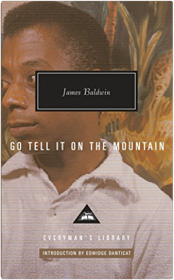
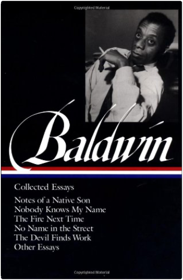
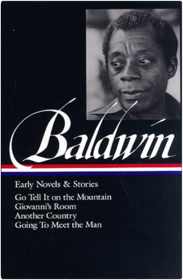
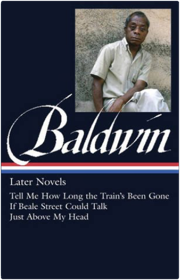
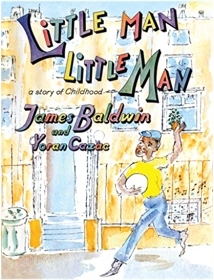


 Made with Delicious Library
Made with Delicious Library